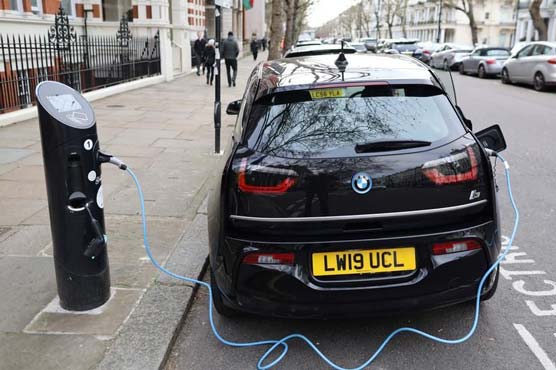

The Guardian reports that “the UK is poised to bring forward its ban on new fossil fuel vehicles from 2040 to 2030 to help speed up the rollout of electric vehicles across British roads”. It adds: “Boris Johnson is expected to accelerate the shift to electric vehicles this autumn with the announcement, one of a string of new clean energy policies to help trigger a green economic recovery from the coronavirus pandemic. The government had hoped to set out the plans as early as this week, according to sources in the energy and transport industries, but the announcement will be delayed until later this year as it focuses on tackling the rising number of coronavirus cases…The decision to end the sales of new petrol and diesel vehicles by 2030 would put the UK ahead of France, which has a 2040 ban in the pipeline, and in line with…Ireland and the Netherlands…The plan, which is backed by the government’s official advisers at the Committee on Climate Change, is likely to emerge alongside the national plans to become a carbon-neutral economy by the middle of the century.”
Meanwhile, the Times reports on its frontpage that “sales of green cars have jumped above diesels for the first time [in the UK], bolstering claims that traditional fossil-fuel vehicles are in terminal decline”. It adds: “Official figures show that 33,000 pure electric and hybrid cars were registered between April and June, compared with 29,900 diesels. A fifth of cars registered were ‘alternative fuel’ vehicles capable of being driven in zero-emissions mode.” In other news from the UK, the Observer reports that ministers “have been accused of deliberately stalling plans to ban the environmentally damaging process of burning peat bogs”. It adds: “In January, government advisers on the Committee on Climate Change said it should ban peat burning this year, but a new strategy is not expected for months, until well after autumn burning has taken place.”
Elsewhere, the Daily Telegraph covers the news that “Shell is making deep cuts in its fracking business as it tries to free up cash to cope with the pandemic and invest in renewable energy”. It adds: “The international oil giant will cut about 40% of overheads including staff in the US-focused shale oil and gas division by early 2021.” Reuters says “reducing costs is vital for Shell’s plans to move into the power sector and renewables where margins are relatively low. Competition is also likely to intensify with utilities and rival oil firms including BP and Total all battling for market share as economies around the world go green”.
Guest post from The Guardian




